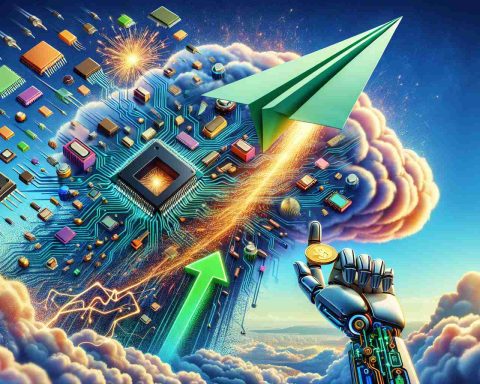Elon Musk, the renowned CEO of Tesla and SpaceX, is once again making headlines with his advocacy for Universal Basic Income (UBI) as a key response to the challenges posed by rapid technological advancement. In a future where automation and artificial intelligence are expected to significantly alter the job market, Musk argues for a UBI to ensure economic stability.
Why UBI? Musk believes that job displacement caused by automation will necessitate new economic models to sustain society. As machines and AI systems become more efficient, traditional employment opportunities may decline, leading to unemployment or underemployment for many. This scenario, Musk contends, makes a strong case for implementing a UBI to provide a financial safety net.
Recent advancements in AI, such as large language models and robotics, have demonstrated their potential
Elon Musk’s UBI Proposal: A Closer Look at its Implications and Innovations
Exploring the Future of Universal Basic Income (UBI)
Elon Musk’s advocacy for Universal Basic Income (UBI) has sparked renewed interest in how societies might cope with the disruptive changes brought about by advanced technologies. As the CEO of Tesla and SpaceX, Musk has become a vocal proponent of UBI, seeing it as an essential tool to navigate the economic turbulence instigated by automation and artificial intelligence (AI). This article delves deeper into the intricacies, innovations, and potential impacts of UBI, a concept that could redefine our economic landscape.
Innovations and Technological Alignment
Musk’s vision aligns with recent innovations in AI, particularly advancements in large language models and robotics. These technologies, while boosting efficiency and productivity, threaten traditional employment roles. As economies lean more heavily on automation, the call for UBI grows louder, potentially ensuring that technological progress does not exacerbate socio-economic disparities.
The Pros and Cons of UBI
The implementation of UBI comes with several potential benefits and drawbacks:
– Pros:
– Economic Stability: UBI could provide financial security for individuals facing job displacement, smoothing economic transitions.
– Innovation Encouragement: A safety net could encourage entrepreneurial activities, as individuals may feel more secure in taking business risks.
– Social Equity: UBI could reduce income inequality, offering everyone a more equal start.
– Cons:
– Costs: Funding UBI could require significant financial restructuring, potentially impacting taxation and public spending.
– Inflation Risks: There are concerns that increased disposable income could drive inflation, reducing the purchasing power of the currency.
– Dependency: Critics argue that long-term reliance on UBI could diminish the incentive to work or develop new skills.
Market Analysis and Trends
In recent years, several countries have experimented with UBI pilots to assess its feasibility and impact. These trials provide crucial data but also highlight UBI’s complex nature. As global economies continue to digitize and automate, the trend towards considering UBI as a viable policy option grows.
Security and Sustainability Considerations
Security and sustainability are significant considerations in UBI discussions. Ensuring secure and efficient distribution systems for UBI payments is vital to prevent fraud and misuse. Moreover, sustainable funding mechanisms are crucial to ensure that UBI remains a viable long-term strategy without undermining economic health.
The Path Forward: Predictions and Insights
While UBI is not without its challenges, its potential to address the economic disruptions caused by technological advances makes it a compelling consideration for future policy. If implemented thoughtfully, it could transform societal structures and facilitate a smoother transition to an automated future. As discussions continue, the insights gathered from global experiments will be invaluable in refining UBI approaches.
For more insights on technological advancements and economic policy innovations, visit Tesla and SpaceX.











